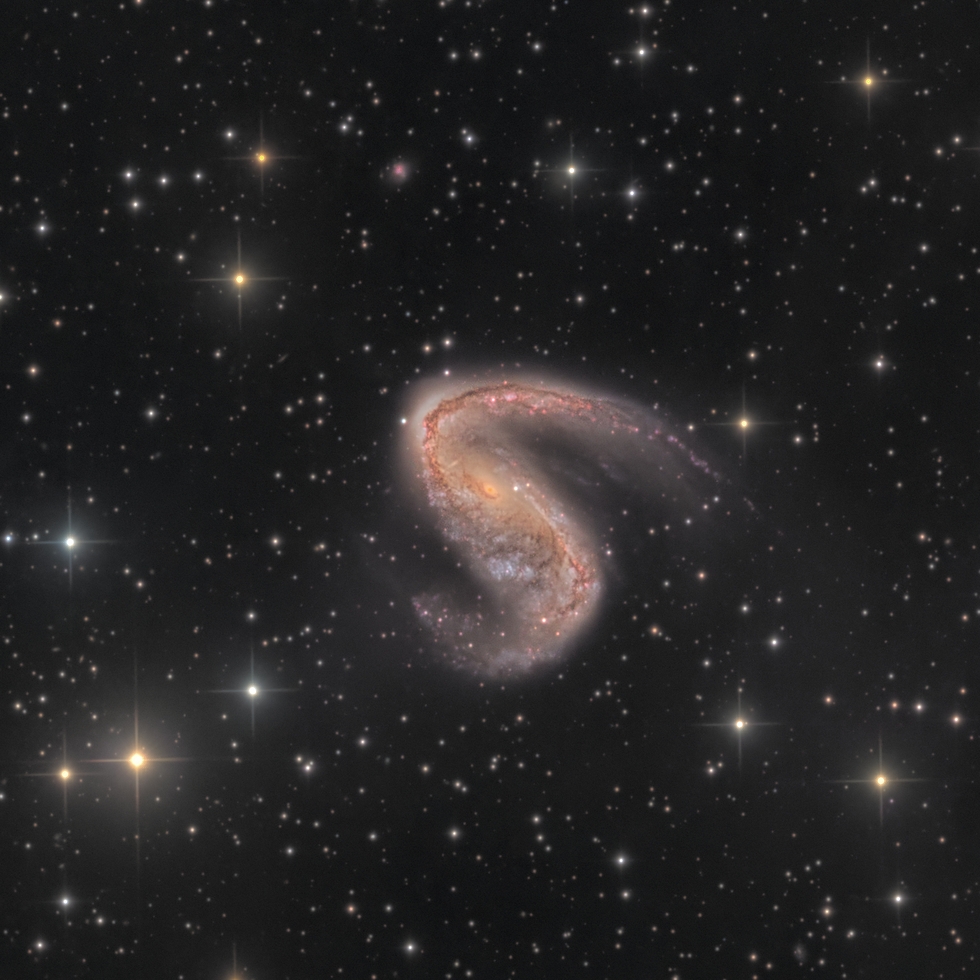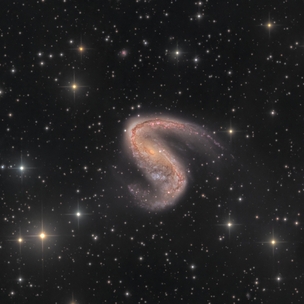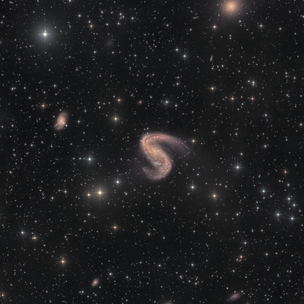NGC 2442
0
14
NGC 2442
12*600 for all filters -> 8H
SuperLuminance by adding all layers into one
NGC 2442 and NGC 2443 are two parts of a single intermediate spiral galaxy, commonly known as the Meathook Galaxy or the Cobra and Mouse. It is about 50 million light-years away in the constellation Volans. It was discovered by Sir John Herschel on December 23, 1834 during his survey of southern skies with a 18.25 inch diameter reflecting telescope (his "20-foot telescope") from an observatory he set up in Cape Town, South Africa. Associated with this galaxy is HIPASS J0731-69, a cloud of gas devoid of any stars. It is likely that the cloud was torn loose from NGC 2442 by a companion.
When John Louis Emil Dreyer compiled the New General Catalogue of Nebulae and Clusters of Stars he used William Herschel's earlier observations that described two objects in a "double nebula", giving the northern most the designation NGC 2443 and the southernmost most the designation NGC 2442. Herschel's later observations noted that the two objects were actually a single large nebula.
SuperLuminance by adding all layers into one
NGC 2442 and NGC 2443 are two parts of a single intermediate spiral galaxy, commonly known as the Meathook Galaxy or the Cobra and Mouse. It is about 50 million light-years away in the constellation Volans. It was discovered by Sir John Herschel on December 23, 1834 during his survey of southern skies with a 18.25 inch diameter reflecting telescope (his "20-foot telescope") from an observatory he set up in Cape Town, South Africa. Associated with this galaxy is HIPASS J0731-69, a cloud of gas devoid of any stars. It is likely that the cloud was torn loose from NGC 2442 by a companion.
When John Louis Emil Dreyer compiled the New General Catalogue of Nebulae and Clusters of Stars he used William Herschel's earlier observations that described two objects in a "double nebula", giving the northern most the designation NGC 2443 and the southernmost most the designation NGC 2442. Herschel's later observations noted that the two objects were actually a single large nebula.
SPECIFICATIONS
Telescope
CHI-1
Camera
FLI PL9000
Location
EL SAUCE OSERVATORY, CHILE
Date of observation
Multiple
Filters
LRGB
Processing
APP,Pixinsight,Affinity
Credits
Thanks to all people of Telescope.Live





